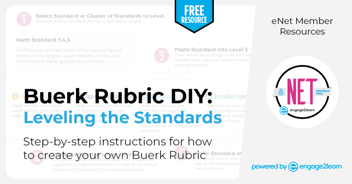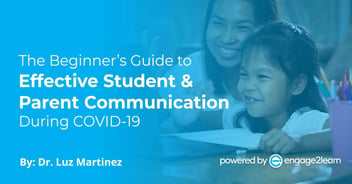The Importance of Formative Feedback | engage2learn

Why Formative Feedback?
This summer I set a goal to run a half-marathon in 2 hours this coming December 2017. This is a big goal for me, considering my fastest time is 2 hours and 15 minutes. As I was reflecting on what I need to do between now and December to meet my goal, I was reminded of what has helped me reach my personal goal of getting back into shape over this past year.
I started working out with a personal trainer in January 2017 and followed his nutrition plan. During my workouts, there were many exercises I was learning for the first time. However, with the immediate feedback I received during the workouts, I was able to learn how to do the exercises correctly.
If I would not have been given immediate feedback then I may have hurt myself doing the exercise incorrectly over a period of time. The formative feedback I was afforded by my personal trainer helped me learn the exercise quicker and ultimately ensured I reached my personal goal of getting back into shape by summer 2017.
As I continue to train for the half-marathon, I know that I’ll need to set formative assessments along the way and ask for feedback in order to ensure when I get to the summative assessment in December that I will know exactly how I will perform.
Doesn’t this same principle of providing formative feedback apply to students so they can practice skills correctly to lead to mastery of content? If students are given timely and relevant feedback, won’t it help them grow as learners and reach their goals?
If students are given timely and relevant feedback, won’t it help them grow as learners and reach their goals? Click To TweetI know from my own personal experience as both a runner and teacher that, when the learner is given formative feedback in a timely manner, it will help them practice correctly and know exactly how they will perform on the summative assessment, whether it is a project, test, or portfolio.
As a learner myself, I crave feedback to ensure I am on track with the goal I am trying to reach. John Hattie, Professor of Education and Director of the Melbourne Education Research Institute at the University of Melbourne, Australia, confirmed that I am not the only one who craves feedback. He says in Visible Learning that, “Students want feedback just for them, just in time, and just helping nudge forward.” So, if we know students crave feedback and the research shows it has a significant influence on student achievement, let’s dive more into what formative feedback is.
Students want feedback just for them, just in time, and just helping nudge forward. - John Hattie Click To TweetWhat is Formative Feedback, Really?
At engage2learn we have done a meta-analysis and define formative feedback as “Activities undertaken by teachers, and by their students in assessing themselves, which provide information to be used as feedback to modify the teaching and learning activities in which they are engaged.”
Such assessment becomes ‘formative assessment’ when the evidence is actually used to adapt the teaching work to meet needs. Students will analyze this feedback to inform their learning next steps.” To go back to my running experience, formative feedback is when my trainer gave me instructions on errors I was making when doing exercises and I used the feedback to modify how I was doing the exercise. Now that we know what makes feedback effective, let’s look at some ways to provide formative feedback to students.
First and foremost, the facilitator must formatively assess students in order to provide formative feedback. It’s just like when you start preparing or training for an event. You first do an initial assessment to know where you are starting, then set a goal based on your reality and finally formatively assess along the way to ensure you are going to reach your goal by the time you get to the event.
In the classroom there are multiple ways to formatively assess students. I love the NWEA 55 tools and digital apps for formative assessment and the 50 practical ways to formatively assess in the classroom in Dylan Williams book, Embedded Formative Assessment. Some of my favorites included ABCD cards, exit tickets, whiteboards, Plickers, polleverywhere and Google forms to name a few.
How can you really learn from a grade?
Once you identify the ways you are going to formatively assess, then it’s important to use that assessment to provide effective feedback to students.
In Embedded Formative Assessment, Dylan Williams came to an overarching conclusion that “feedback should cause thinking”. If you think about how most of us probably received feedback when we were in school, it was through the form of a grade.
Feedback should cause thinking. - Dylan Williams Click To TweetWhat does a grade/score actually tell you about mastery of the standards or reaching your goal? It only tells you a certain percentage you got correct but doesn’t give you any specific feedback in relation to the standards. Does a score tell you exactly where you made an error on a math problem or how you can improve the voice in your writing? No.
If during my workouts, my trainer said you scored a 75 on this workout, I don’t think I would make any improvement from one workout to the next. However, if during the workout he said, “Your knees were over your feet during squats. You need to put your weight on the balls of your feet and heels while pushing your hips back,” then I would be able to correct my squats immediately and practice correctly.
Therefore, if we only give students grades and not specific feedback in the form of a question or comment, then we aren’t really giving students any feedback to cause them to think and improve upon the work they are doing to reach their goals.
Tools and Resources
Some of the ways I have found effective to give students feedback is through using digital tools and having students track their own progress. Digital tools such as applying Flubaroo to Google forms, Kahoot, and Socrative are a few that allow the facilitator to effectively assess students and provide immediate feedback to students in the form of comments on errors. In fact there are many studies that found students learned twice as fast when they received constructive feedback in the form of comments or suggestions.
We know that if we want to personally grow as learners and we want students to grow towards mastery of standards then formative feedback is essential. So, the next time you get ready to formatively assess your students, think about how you can effectively provide formative feedback to them after they take the assessment and how they can track their progress towards mastery of their goals.



